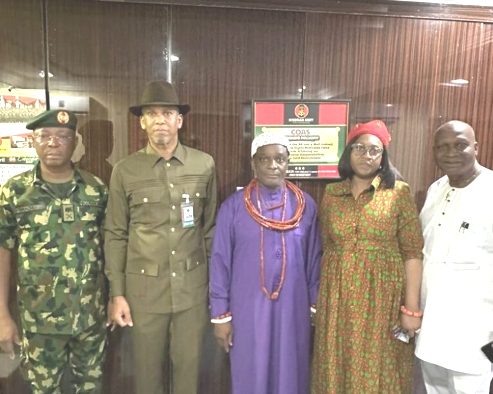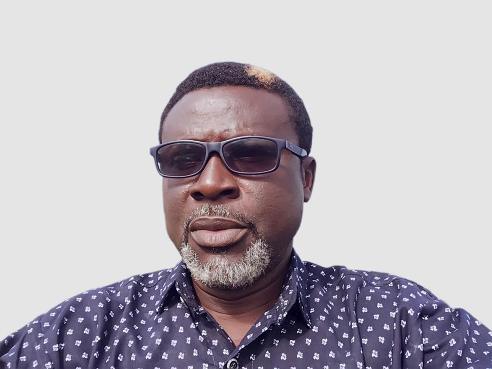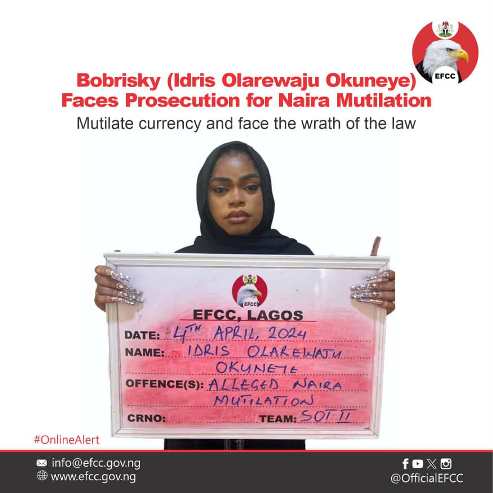How Continuous Operations Of Warri Refinery Exposes NNPC’s Financial Recklessness

LAGOS MARCH 31ST (URHOBOTODAY)-If private individuals had owned Warri Refining and Petrochemical Company Limited, they would have shut down the plant by now. The reasons are simple: The refinery is unprofitable, inefficient and in huge debt. The continued operation of the distressed company also exposes the Nigerian National Petroleum Corporation (NNPC)’s financial recklessness, The ICIR analysis of its 2017-2019 financial statements has shown.
Imagine a company generating revenue of N4.429 billion in three years, but incurring expenses of N144. 140 billion within the same period. Who bears the N139.711 billion deficit burden? This is the story of Warri refinery, which has a workforce of 515 staff that have been unable to justify their take-home pays – while the NNPC watches on.
Between 2017 and 2019, the refinery incurred N178.315 billion cumulative loss, which rises to N188.436 billion if ‘comprehensive loss’ is factored in. Comprehensive income/loss is “net income and unrealized income, such as unrealized gains or losses on hedge/derivative financial instruments and foreign currency transaction gains or losses.”
n the traditional calculation of debt ratio, total liabilities (debt) is divided by total assets. According to Investopedia, debt ratio is expected to be less than one for any firm to be considered sustainable.
A ratio less than one means that a significant portion of a company’s assets is funded by equity or investors’ money. But when it is above one, then a significant proportion of company’s assets is funded by debt and the firm could be at a risk of default.
In the case of Warri refinery, the debt ratios were 25.1 in 2018 and 6.12 in 2019, a red flag to lenders who wanted their money back, said Innocent Unah, an investment banker and accountant. In 2017, its debt ratio was 7.6 – similar to previous years.
In simple accounting, when liability stands above assets, it is a sign that a company like Warri Refinery is headed for bankruptcy.
The NNPC has been borrowing to fund activities at Warri refinery, even when its operations do not show any capacity to pay back.
n 2019, liabilities (tax, debt, lease) of the refinery stood at N485.96 billion whereas total assets amounted to only N79.43 billion.
In 2018, liabilities were estimated at N383 billion while the company had assets of N19.36 billion.
With total assets valued at N43.92 billion in 2017, liabilities were valued at N333.43 billion.
“When you have a company like this, shut it down or hand it over to people who can manage it. Why should you keep this company on when all it does is to eat into your savings,” said Attah Anzaku, business expert and chief executive of an international commodity trading firm, AgroEknor.
Financial analysts say there are many ways of calculating firm efficiency, including return on assets (ROA) and return on equity (ROE).
Warri refinery has a negative net income due to its humongous losses. Its ROA from 2017 to 2019 were -1.94, -2.33 and -0.62 respectively.
A negative ROA means that the company cannot generate money from its assets, implying that it is not a good investment, says Easy Portfolio, an online investment website.
On the other hand, ROE for 2017-2019 were all in the negative, standing at -0.298, -0.124 and -0.123 respectively.
This means the refinery is neither profitable nor efficient.
It is conventional wisdom that when a business’ return on equity is negative, shareholders are losing, rather than gaining value, said Matt Petryni a business and investment analyst of Pocketsense fame.
“This is usually a terrible sign, for investors and managers try to avoid a negative return as aggressively as possible. Most investors avoid placing their money in a company that fails to deliver positive returns consistently. Still, investors may overlook a negative return for a single tough year if they believe the company is well-positioned for long-term growth,” Petryni said.
From the ICIR’s computations, Warri refinery failed in all financial metrics, returning negative outcomes even in cash flows.
Its net cash flows at the end of 2018 and 2019 were N160.9 million and N5.90 billion respectively. The figure stood at N264.2 million in 2017.
This means that Warri refinery does not even have enough cash to run its operations.
Directors, workers enjoy largesse
Despite the huge losses incurred by the refinery, directors increased their remuneration from N270.090 million in 2018 to N332.137 million in 2019. The directors had collected N353.019 million as remuneration in 2017. In 2017, salaries, wages and allowances of workers were valued at N12.9 billion. This increased to N13.755 billion the following year. In 2019, it reduced to N12.348 billion.
Initial names of directors in 2019 were Eng. M. Abali, Mr F.I. Ololo, Engr A. Number and Mr A.E Bisong. However, NNPC said in the 2019 financial statement that these names were later replaced with Mr Babatunde Bakare, Mrs Regina D. Falomo, Engr Kofar- Bai A Zubairu, and Mr Danlami K. Bello.
In 2018, names of directors were Eng. M. Abali, Mr A.E Bisong, Mr H.C Amadi, Mr F.I.O Ololo and Eng A. Ariaga.
The Warri refinery is the first Nigerian government wholly-owned refinery.
It was commissioned in 1978 but was incorporated as a limited liability company in November 1988 after its merger with Ekpan Petrochemical Plants. It was built to process 100,000 barrels of crude oil per day but was later de-bottlenecked to process 125,000 barrels per day in 1987, according to the NNPC.
It was essentially targeted at adding value to some of the refinery by-products such as propylene, rich stock and decant oil. However, this has not happened.
There have been several turnaround maintenance contracts awarded for the repair of Warri Refining and Petrochemical Company Limited.
In June 1989, the then federal government of Ibrahim Badamosi Babangida borrowed $27.7 million from the World Bank to repair the refinery.
About $10.7 million was devoted to the maintenance of Warri refinery, representing 39 percent of the total loan. Another $5.9 million was sourced from the local market for the same purpose.
The loan was to be made available to the NNPC at the then World Bank standard variable interest rate for 15 years. The federal government guaranteed the loan while the NNPC was to bear the foreign exchange risk.
The federal government awarded another contract in 1994 for the same purpose. In 2000, turnaround maintenance valued at $7.6 million was awarded to an Italian company Comerint SPA. As at 2000, the refinery was in a decrepit state, even with the last maintenance work done six years earlier. Before the maintenance project started, the plant had been out of service due to an explosion in its crude distillation unit heater that caused huge damage to the main crude oil heater, Oil and Gas Journal reported.
Experts knock FG, suggest privatisation of Warri refinery
President of Nigerian Society of Petroleum Engineers Joe Nwakwue said the major problem with such a refinery was policy dissonance.
“What strategic purposes does retaining full ownership of the refineries serve?” he asked, in response to The ICIR questions.
“Having an Operate and Manage contractor with no skin in the game by way of equity can be challenging, but we have a successful story of such an arrangement. My personal view is that we should have gone through with sale of majority stake to a core investor and let them worry about rehabilitation and operation,” he said.
Nwakwue was, perhaps, speaking about the LNG model in which the NNPC owns 49 percent, while Shell Gas B.V, Total LNG Nigeria Ltd and Eni International have 51 percent stake.
Being a joint ownership, there is little interference on the part of the government, which has a minority stake in the business and enjoys dividends and returns on investment.
An oil sector governance expert Henry Ademola Adigun said the refineries in Nigeria were never going to add any value to Nigerians’ lives. He wondered why the government was still holding onto a refinery like Warri rather than privatise it.
An associate consultant at the British Department for International Development Celestine Okeke told The ICIR that Nigerian government was losing money while workers were gaining.
“All the refineries in Nigeria are in the same condition. There has not been rational thinking in managing these refineries,” he said.
“If the government is seeking a genuine solution, it should put out the refineries for the private sector to operate and manage it,” Okeke noted.
“The recruitment process and the quality of the recruited staff into the NNPC has been questionable. They should adopt the NLNG model and run the enterprise as a commercial entity. We are losing money from the cost of insurance, salaries and paying for a refinery that doesn’t generate money.”
Former vice president Atiku Abubakar has asked the federal government to privatise Nigeria’s obsolete refineries and the Nigerian National Petroleum Corporation (NNPC) using the time-tested LNG model.
Atiku said this on his Twitter handle on Sunday where he proffered solutions to Nigeria’s endemic unemployment rate, which rose from 27.1 percent in the second quarter of 2020 to 33.3 percent in the fourth quarter of the same year.
“We can no longer say we cannot afford this. We can. As a nation, we are better off privatising our refineries and the NNPC through the time-tested LNG model in which the FG owns 49 percent equity and the private sector 51 percent,” he said.
NNPC’s position
The NNPC’s responses have centred on how it reduced losses in the 2019 financial year.
Before releasing the 2019 financial statement, NNPC spokesman Kennie Obateru had quoted chief financial officer (CFO) Umar Ajiya as saying that the majority of the subsidiaries posted improved performance.
Ajiya admitted that the refineries had maintained the same level of losses as in 2018, assuring that it would reduce significantly in 2020 due to cost optimisation drive.
The CFO explained that the improved performance in the 2019 financial year was driven mainly by cost optimisation, contracts renegotiation and operational efficiency.
The 2019 AFS goes further to demonstrate our unwavering commitment to the principle of Transparency, Accountability and Performance Excellence (TAPE) while the outlook for 2020 looks promising given the Management’s strong drive to prune down running cost and grow revenues.”
NNPC said it reduced cost by 99.7 percent, but failed to explain how it intended to cut wastes at the refineries.
ICIR






















